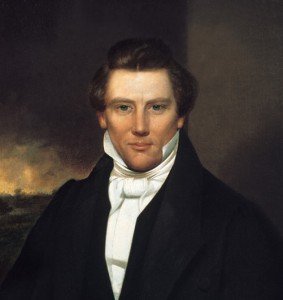[This is the second post in a series. To read the series from the beginning, go to A Faithful Joseph.]
This week our home teacher stopped by to cheer us. For his lesson, he told us the Christmas story from memory. Two verses stood out in particular:
Behold, I bring you good tidings of great joy, which shall be to all people.
For unto you is born this day in the city of David a Saviour, which is Christ the Lord. [ref]Luke 2: 10-11[/ref]
Joy to All People
The manner in which we are to be saved is explained in the story of Nicodemus, recorded in the Gospel of John:
Except a man be born of water and of the Spirit, he cannot enter into the kingdom of God. [ref]John 3:3[/ref]
God so loved the world that he gave his only begotten Son, that whosoever believeth in him should not perish, but have everlasting life. [ref]John 3:16[/ref]
Throughout scripture, the Lord speaks of the salvation of all mankind, of whosoever believeth in God. Yet when Joseph knelt in the grove to pray, there was no theology that had a mechanism that might save all mankind. On that bright spring day in 1820,[ref]John Lefgren’s analysis of local weather patterns and the science of maple syrup place the date of this vision on Palm Sunday, 1820[/ref] all Joseph knew was that God lived and there was something about the religions of the day that was not right in God’s eyes.
I submit that it was the loss of the doctrines that would save all mankind that God mourned. Continue reading


